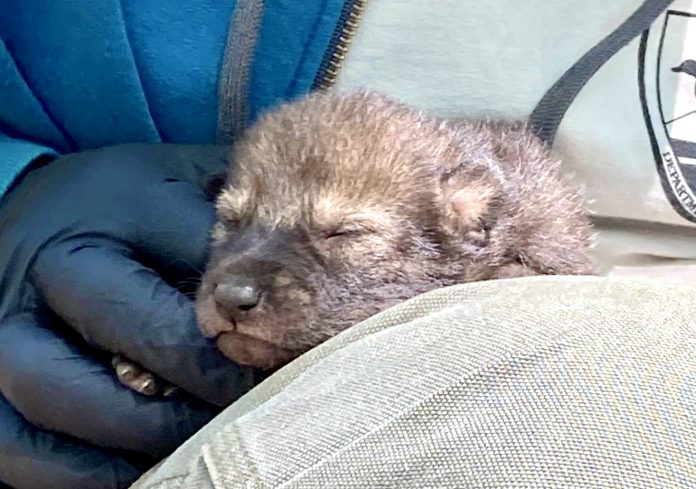Photo of Red wolf pup from Red Wolf Recovery Program, U.S. Fish and Wildlife Service
Heartwarming news as a litter of six critically endangered wild red wolf pups has been born in eastern North Carolina. The U.S. Fish and Wildlife Service’s Red Wolf Recovery Program staff confirmed last week that four females and two male pups were born to a wild red wolf pair in Alligator River National Wildlife Refuge.
This significant news for the near-extinct species comes amid a renewed recovery effort by the Service. The agency had largely abandoned its recovery efforts for the world’s rarest canine since 2015, but officials announced in February that they were committing significant resources to revitalize the program and ensure a full recovery for the species in the wild.
“There is a clear cause-and-effect relationship between the Service’s recovery efforts and the survival and reproduction of red wolves in the wild,” said Perrin de Jong, North Carolina staff attorney at the Center for Biological Diversity. “It’s tremendously encouraging to see the agency trying to protect and recover wild red wolves again. My heart is filled with hope at the sight of a new generation of red wolves taking their rightful place on the landscape.”
The parents of this newborn litter were brought together as a result of the Service’s renewed efforts to encourage the reproductive success of red wolves in the wild. The agency’s matchmaking efforts met with success when the adult wolves paired, established their territory, and mated.
The agency’s revitalized red wolf recovery efforts include the following initiatives:
-
Resuming robust releases of red wolves into the wild population;
-
Matchmaking efforts to pair captive-bred red wolves with wild individuals;
-
Deploying a pup fostering program to increase the size of wild red wolf litters;
-
Using a local coyote sterilization program to protect red wolf genetics;
-
Rewriting the red wolf recovery plan, including an exploration of new reintroduction sites for wild red wolves; and
-
Taking steps to protect the safety of wild red wolves, including public outreach programs to build good will among people living in the recovery area.



